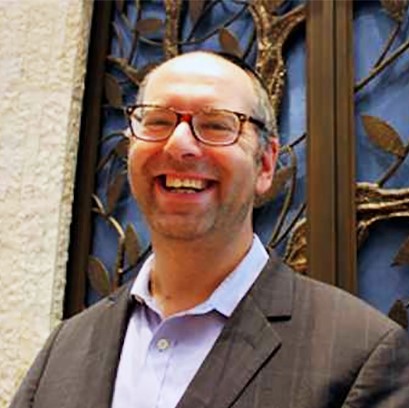
News

Visiting rabbi impressed by local community
JORDAN MOSHE
“I was impressed by the calibre and unity of the rabbinate here,” said Rabbi Shaul Robinson, who visited South Africa for the first time last week as a guest of the South African Rabbinical Association at its training seminar. Robinson, originally from Glasgow, Scotland, has been senior rabbi at the Lincoln Square Synagogue in Manhattan, New York City, for the past 14 years.
“You don’t find something like it outside of South Africa, certainly not in America,” he told the SA Jewish Report.
“The level of unity and mutual respect amongst Orthodox rabbis of different backgrounds and ages, be they Chabad or Mizrachi, was remarkable. There is a real sense of collegiality, friendship, and a shared mission.”
Over two days at the seminar, the rabbis discussed the challenges facing communities across the globe including helping congregants in crisis, coping with the anxiety of the time, and how to address the reality of declining communities.
“The community is shrinking, causing real anxiety about how big it will be in a few years’ time and how many institutions will remain viable. The rabbis are certainly anxious about the future, and how to address the challenges lying ahead.”
In spite of their anxiety, Robinson said he felt a certain energy amongst the rabbinate that he had never experienced elsewhere.
He said he knew little about South Africa or its community beforehand. “I knew that the issue of apartheid had been complicated, and that former Chief Rabbi Cyril Harris had been a good friend of [Nelson] Mandela. I knew that the community here has experienced waves of emigration to various places worldwide, and I was also aware that there has been a unique increase in religiosity within the community.”
However, he wasn’t prepared to encounter a united rabbinate which operated within a solid Jewish infrastructure that thrived in spite of the relatively small size of the community.
He stressed that this sense of unity isn’t merely a consequence of the community’s size. “In relatively small communities all over the United States, it’s often the case that the realms of Chabad, Orthodoxy and ultra-Orthodoxy remain separate, and tend not to mix. It’s not just because they’re competing for donors, but because of ideological incompatibilities that are often emphasised and present obstacles to any sort of interaction.
“Rabbis in England, for instance, have co-operated before, but this tends to happen among an extremely narrow band which comes together because of some formal affiliation. In Johannesburg, I saw a genuine sense of co-operation which extended beyond the fact that the rabbis were affiliated to the Union of Orthodox Synagogues.”
A melava malka (informal post-Shabbos gathering) on Saturday night hosted in a rabbi’s home was a case in point. “You’d never see something like that in New York or in London,” said Robinson. “To see rabbis voluntarily socialising and getting together? It doesn’t happen.
“It’s not just because the community may be shrinking, and people need to fall back on each other. It’s clearly a culture.”
He believes this culture extends beyond the rabbinate. “In the rest of the world, ‘chevrah kadisha’ refers to the volunteers who prepare a body for burial,” he says. “In South Africa, ‘the Chev’ is an amazing social-service organisation that looks after the welfare of the entire community.
“Before Shabbat, I had a chance to visit Sandringham Gardens with Rabbi Jonathan Fox. The home cares for more than 1 000 people. When I visit old-aged homes elsewhere, they’re often either private and thus extremely expensive, or public, down at heel, and reeking of neglect.”
He was even taken aback by how easy it is to keep kosher in Johannesburg. “It’s easier to keep kosher in Johannesburg than it is in Manhattan. I stayed at the Genesis Suites, and was blown away by the fact that a small supermarket one level down had a kosher bakery and take-out counters. The range of kosher restaurants and infrastructure is astounding.”
Based on his interaction with community leaders like Chief Rabbi Dr Warren Goldstein and the chairperson of the SA Rabbinical Association, Rabbi Yossi Chaikin, Robinson believes that our rabbis’ engagement with the community is driven by genuine interest. This is in spite of a sense of anxiety, personal and professional.
“It’s fair to say that rabbis are feeling vulnerable in South Africa,” said Robinson. “The country’s economy isn’t wonderful, the rand is weak, and most rabbis work two jobs. Many aren’t well paid, have no wherewithal to build up life savings, and are anxious about retrenchment, and synagogue closures.
“It struck me that in spite of all of the anxiety, I encountered a group of 50 rabbis who remain excessively focused on their goal of serving a community no matter what. Their anxiety is real, but it has by no means lead to any resentment or burnout. This is a special group of people.”
This strength pervades the community as a whole.
“It’s a community that proves that strength isn’t determined by how big or small the community is, but by how willing people are to get involved,” Robinson said. “In South Africa, people take their Judaism and community seriously, and communities around the world can learn much from this.”




